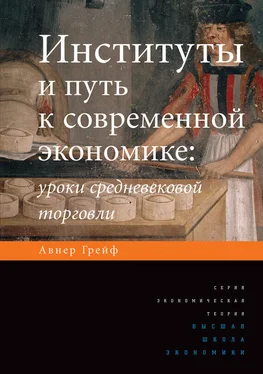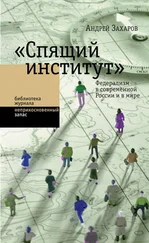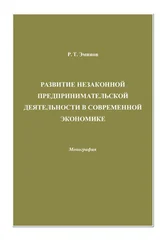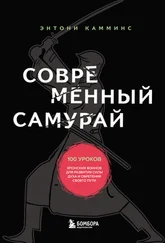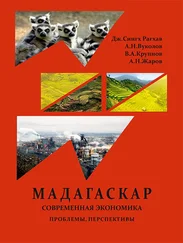Djankov S., Glaeser E.L., La Porta R. (eds). The New Comparative Economics // Journal of Comparative Economics. 2003. Vol. 31. No. 4. P 595–619.
Dobbin F. Forging Industrial Policy: The United States, Britain and France in the Railroad Age. Cambridge: Cambridge University Press, 1994.
Dollinger P. The German Hansa. Stanford, CA.: Stanford University Press, 1970.
Donaver F. Storia di Genova. Genoa: Nuova Editrice Genovese, 1990 [1890].
Duby G. The Early Growth of the European Economy. Ithaca, NY: Cornell University Press, 1974.
Duffy B. The Tuscan Republics (Florence, Siena, Pisa and Lucca) with Genoa. N.Y.: G. P Putnam’s Sons, 1903.
Dugger W.M. The New Insitutionalism: New but Not Insitutionalist // Journal of Economic Issues. 1990. Vol. 24. No. 2. P 423–431.
Durkheim E. The Rules of Sociological Method. N.Y.: Free Press, 1950 [1895].
Durkheim E. Sociology and Philosophy. N.Y.: Free Press, 1953.
Easterly W. The Illusive Quest for Growth. Cambridge, MA: MIT Press, 2001.
Easterly W., Levine R. Tropics, Germs, and Crops: How Endowments Influence Economic Development. Mimeo, Center for Global Development and Institute for International Economics, 2002.
Eggertsson T. Economic Behavior and Institutions. Cambridge: Cambridge University Press, 1990.
Ekelund R.B. Jr., Hebert R.F., Tollison R.D. (eds) Sacred Trust: The Medieval Church as an Economic Firm. N.Y.: Oxford University Press, 1996.
Ekelund R.B., Jr., Tollison R.D. Mercantilism as a Rent-Seeking Society. College Station: Texas A&M University Press, 1981.
Ellickson R.C. Order without Law. Cambridge, MA: Harvard University Press,
1991.
Ellison G. Learning, Local Interaction, and Coordination // Econometrica. 1993. Vol. 61. No. 5. P 1047–1071.
Ellison G. Cooperation in the Prisoner’s Dilemma with Anonymous Random Matching // Review of Economic Studies. 1994. Vol. 61. No. 3. P 567–588.
Elster J. Explaining Technical Change: A Case Study in the Philosophy of Science. Cambridge: Cambridge University Press, 1983.
Elster J. The Cement of Society: A Study of Social Order. Cambridge: Cambridge University Press, 1989a.
Elster J. Social Norms and Economic Theory // Journal of Economic Perspectives. 1989b. Vol. 3. No. 4. P 99-117.
Elster J. Rational Choice History: A Case of Excessive Ambition // American Political Science Review. 2000. Vol. 94. No. 3. P. 685–695.
Ely J., Yilankaya O. Evolution of Preferences and Nash Equilibrium. Mimeo, Northwestern University, 1997.
Emery R. The Use of the Surname in the Study of Medieval Economic History // Medievalia et Humanistica. 1952. Vol. 7. P. 43–50.
Engerman S.L., Sokoloff K.L. Factor Endowments, Institutions, and Differential Paths of Growth among New World Economies / S. Haber (ed.). How Did Latin America Fall Behind? Stanford, CA: Stanford University Press, 1997. P 260–304.
Edward D. Enterprise and Liability in Sienese Banking. Cambridge, MA: Medieval Academy of America. 1988. P 1230–1350.
English Historical Documents, 1042–1189. 1968 / D.C. Douglas, G.W Greenaway (eds). Vol. 2. London: Eyre and Spottiswoode.
English Historical Documents, 1189–1327. 1975 / H. Rothwell (ed.). Vol. 3. London: Eyre and Spottiswoode.
Ensminger J. Changing Property Rights: Reconciling Formal and Informal Rights to Land in Africa / J.N. Drobak, J.V.C. Nye (eds). The Frontiers of the New Institutional Economics. N.Y.: Academic Press. 1997. P. 165–196.
Epstein S.A. Wills and Wealth in Medieval Genoa. Cambridge, MA: Harvard University Press, 1984. P 1150–1250.
Epstein S.A. Wage Labor and Guilds in Medieval Europe. Chapel Hill: University of North Carolina Press, 1991.
Epstein S.A. Genoa and the Genoese. Chapel Hill: University of North Carolina Press. 1996. P 958-1528.
Epstein S.R. Craft Guilds, Apprenticeship and Technological Change in Preindustrial Europe // Journal of Economic History. 1998. Vol. 53. No. 4. P 684–713.
Epstein S.R. Freedom and Growth: The Rise of States and Markets in Europe. N.Y.: Routledge. 2000. P 1300–1750.
Ertman T. Birth of the Leviathan: Building States and Regimes in Medieval and Early Modern Europe. Cambridge: Cambridge University Press, 1997.
Eysenck M.W., Keane M.T. Cognitive Psychology: A Student’s Handbook. Hillsdale, MI: Lawrence Erlbaum, 1995.
Face R.D. The Embriaci: Feudal Imperialists of the Twelfth-Century Genoa // M.A. thesis, University of Cincinnati, 1952.
Epstein S.R. Techniques of Business in the Trade between the Fairs of Champagne and the South of Europe in the Twelfth and Thirteenth Centuries // Economic History Review. 1958. Vol. 10. No. 3. P 427–438.
Epstein S.R. Secular History in Twelfth Century Italy: Caffaro of Genoa // Journal of Medieval History. 1980. Vol. 6. No. 2. P 169–184.
Fafchamps M. Market Institutions in Sub-Saharan Africa. Cambridge, MA: MIT Press, 2004.
Falk A., Fischbacher U. A Theory of Reciprocity // Working Paper. University of Zurich. 2000. No. 6.
Farrell J., Maskin E. Renegotiation in Repeated Games // Games and Economic Behavior. 1989. Vol. 1. No. 3. P 327–360.
Fearon J.D. Counterfactuals and Hypothesis-Testing in Political-Science // World Politics. 1991. Vol. 43. No. 2. P 169–195.
Fearon J.D. Bargaining over Objects That Influence Future Bargaining Power // Working Paper, Department of Political Science, University of Chicago, 1997.
Fearon J.D., Laitin D.D. Explaining Interethnic Cooperation // American Political Science Review. 1996. Vol. 90. No. 4. P 715–735.
Fehr E., Fischbacher U. Reputation and Retaliation. Mimeo, University of Zurich, 2001.
Fehr E., Gaechter S. Cooperation and Punishment in Public Good Experiments // American Economic Review. 2000. Vol. 90. № 4. P. 980–994.
Fehr E., Schmidt K.M. A Theory of Fairness, Competition, and Cooperation // Quarterly Journal of Economics. 1999. Vol. 114. No. 3. P 817–868.
Fehr E., Schmidt K.M. Theories of Fairness and Reciprocity – Evidence and Economic Applications // Working Paper 75, Institute for Empirical Research in Economics, University of Zurich, 2001.
Fehr E., Schmidt K.M. Theories of Fairness and Reciprosity: Evidence and Economic Applications / M. Dewatripont, L.P. Hansen, S. Turnovsky (eds). Advances in Economics and Econometrics: Theory and Applications, Eighth World Congress. Cambridge: Cambridge University Press. 2003. Vol. 1. P. 208–256.
Fernandez R., Rodrik D. Resistance to Reform: Status Quo Bias in the Presence of Individual-Specific Uncertainty // American Economic Review. 1991. Vol. 81. № 5. P. 1146–1155.
Fershtman C., Weiss Y. Social Status, Culture and Economic Performance // Economic Journal. 1993. Vol. 103 (July). P. 946–959.
Field A. The Problem with Neoclassical Institutional Economics: A Critique with Special Reference to the North-Thomas Model of Pre-1500 Europe // Explorations in Economic History. 1981. Vol. 18. No. 2. P. 174–198.
Field A. Altruistically Inclined?: The Behavioral Sciences, Evolutionary Theory, and the Origins of Reciprocity. Ann Arbor: University of Michigan Press, 2002.
Fischbacher U., Gaechter S., Fehr E. Are People Conditionally Cooperative? Evidence from a Public Goods Experiment // Economic Letters. 2001. Bd. 71. S. 397–404.
Fischel W.J. The Spice Trade in Mamluk Egypt // Journal of Economic and Social History of the Orient. 1958. Vol. 1. No. 2. P. 157–174.
Читать дальше
Конец ознакомительного отрывка
Купить книгу
